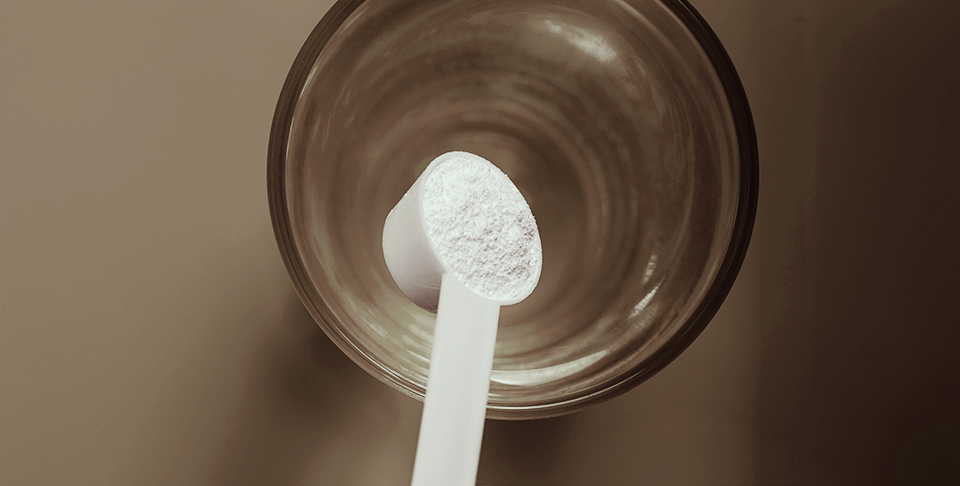Quick Summary
- HMB (Beta-hydroxy-beta-methylbutyrate) is a metabolite of leucine, offering anabolic, lipolytic, & recovery-boosting effects.
- HMB is naturally synthesized in the body from leucine, but its conversion is inefficient, necessitating supplementation.
- HMB works in conjunction with training to prevent muscle breakdown & speed up muscle repair, leading to gains in lean muscle and strength.
- HMB may also benefit athletes like runners and cyclists by increasing V02 max & endurance capacity.
- The compound plays a role in cholesterol synthesis, leading to lower blood cholesterol levels.
- HMB's preservation of lean muscle mass during caloric deficits aids in fat loss.
- It reduces exercise-induced muscle damage and protein breakdown, improving recovery & reducing DOMS.
- HMB is considered safe, & daily doses of 3 to 6g show no adverse effects.
- Stacking HMB with other supplements, such as creatine & BCAAs, likely enhances its benefits.
- By incorporating HMB into their regimen alongside effective strategies, individuals can optimize their bodybuilding & athletic performance.
Introduction
HMB, or Beta-hydroxy-beta-methylbutyrate, is a metabolite of the essential amino acid leucine. It has gained significant attention within the fitness community due to its well-documented anabolic, lipolytic, & recovery-boosting effects.
This comprehensive guide aims to explore the origins, benefits, & practical applications of HMB for bodybuilders & athletes, while also addressing recommended dosages, safety considerations, & potential stacking options.
What is HMB?
HMB is a naturally occurring compound that is synthesized within the body from leucine, a branched-chain amino acid (BCAA). It plays a crucial role in protein metabolism & muscle protein synthesis, contributing to muscle growth & recovery.
Where Does HMB Come From?
Although HMB is found in trace amounts in certain foods like citrus fruits and catfish, obtaining sufficient HMB solely from the diet is challenging. The conversion of leucine to HMB is highly inefficient, making supplementation a practical option to harness its benefits for performance enhancement.
HMB Benefits for Bodybuilding
HMB has been a topic of interest in the bodybuilding community since the 1990s, & its popularity has continued to rise due to its impressive benefits. By promoting an anabolic state & preventing muscle breakdown, HMB helps increase lean body mass, & strength, & reduce body fat.
Additionally, athletes engaged in endurance sports may experience enhanced V02 max, leading to improved endurance capacity. Numerous studies have demonstrated the effectiveness of HMB in promoting lean mass gains & strength improvements when combined with proper training protocols.
HMB Benefits for Strength
Research has shown that HMB supplementation can lead to significant strength gains in both untrained & trained individuals. The dosage appears to be proportional to the strength improvements, with 3g/day being the most effective.
Some studies have also indicated that HMB's strength benefits can synergise with creatine supplementation, enhancing the overall impact on strength development.
HMB Benefits for Lean Mass Gains
In conjunction with weight training, HMB supplementation has been found to result in substantial lean mass gains in both untrained & trained subjects. This effect is further augmented when HMB is combined with creatine, making it a powerful tool for muscle development & overall body composition improvement.
HMB Benefits for Fat Loss
HMB's ability to preserve lean muscle mass during caloric deficits contributes to its impact on fat loss. Studies have shown that HMB supplementation can lead to significantly higher fat loss compared to unsupplemented groups. Moreover, HMB has been linked to positive effects on cholesterol levels, making it potentially beneficial for heart health.
HMB Benefits for Recovery
One of HMB's most valuable benefits lies in its ability to reduce exercise-induced muscle damage & protein breakdown. As a result, individuals supplementing with HMB may experience faster recovery times & reduced delayed onset muscle soreness (DOMS).
This recovery-enhancing property makes HMB particularly valuable for athletes engaged in intense training regimens.
HMB Benefits for Bodybuilders & Weight Loss
The various benefits of HMB, including increased muscle mass, decreased fat mass, & improved recovery, make it a valuable asset for bodybuilders & individuals seeking weight loss. Its positive effect on cholesterol levels also contributes to heart health, promoting overall well-being.
Research suggests that the effects of HMB may be more pronounced & rapid among novices & untrained individuals compared to experienced athletes. Novices tend to experience more muscle damage from exercise, making HMB's protective effect more prominent in this population.
HMB Recommended Timing, Dosage, Safety & Side Effects
HMB is considered safe & water-soluble, with any excess being excreted in the urine. Numerous studies have evaluated HMB's safety, with daily doses of 3 to 6g showing no adverse effects over several months.
However, it has been recommended that a dose of 3g/day (divided into three 1g portions) is most beneficial, as doses of 6g/day did not provide additional benefits. HMB's short half-life in the blood suggests that split doses or smaller daily intakes are more effective.
HMB Supplements
HMB supplements in Australia are available in various forms such as powders, capsules, & tablets. One of the most popular, that has stood the test of time is Body Ripped HMB. This pure powdered HMB supplement with no additives has received many positive consumer reviews, providing anecdotal evidence that supports its effectiveness.
Stacking HMB Supplements
To maximize the benefits of HMB, it is recommended not to exceed individual dosages of 1g per intake. HMB synergizes effectively with creatine, beta-alanine, BCAAs, L-glutamine, whey protein, & other supplements.
Moreover, combining HMB with proven strategies like post-exercise high biological value protein intake rich in leucine can further optimise the adaptation to resistance training.
Conclusion
HMB, as a metabolite of leucine, offers a plethora of benefits for bodybuilders & athletes, ranging from muscle growth & strength improvement to fat loss & faster recovery. Its safety profile, well-documented effects, & potential for synergistic effects with other supplements make it a valuable addition to fitness regimens.
It is advisable to consult with a healthcare professional before starting HMB supplementation to ensure it aligns with individual health situation, goals & needs. With proper usage & in combination with other effective strategies, HMB can be an indispensable tool for achieving optimal results in bodybuilding & athletic pursuits.
References
Coelho C, Carvalho : Effects of hmb supplementation on ldl-cholesterol, strength and body composition of patients with hypercholesterolemia. Medicine & Science in Sports & Exercise, 33: M340
Gallagher et al (2000), β-hydroxy-β-methylbutyrate ingestion, part I: Effects on strength and fat free mass. Med Sci Sports Exerc, 32: 2109-2115
Jowko (2001), Creatine and β-hydroxy- β-methylbutyrate (HMB) additively increase lean body mass and muscle strength during a weight-training program. Nutr, 17: 558-566
Nissen et al (1996a), Effect of leucine metabolite beta-hydroxy-beta-methylbutyrate on muscle metabolism during resistance-exercise training. J Appl Physiol, 81: 2095-2104
Nissen et al (1996b), Effect of β-hydroxy- β -methylbutyrate (HMB) supplementation on strength and body composition of trained and untrained males undergo-ing intense resistance training. FASEB J 1996, 10:287.
Nissen et al (2000), β -Hydroxy-β-Methylbutyrate (HMB) Supplementation in Humans Is Safe and May Decrease Cardiovascular Risk Factors. Journal of Nutrition, 130: 1937-1945
Panton et al (2000), Nutritional supple-mentation of the leucine metabolite beta-hydroxy-beta-methylbutyrate (hmb) during resistance training. Nutr, 16: 734-9
Van Someren (2005) Supplementation with [beta]-hydroxy-[beta]-methylbutyrate (HMB) and [alpha]-ketoisocaproic acid (KIC) reduces signs and symptoms of exercise-induced muscle damage in man. International Journal of Sport Nutrition & Exercise Metabolism, 15: 413-424
Wilson et al (2008), Effects of beta-hydroxy-beta-methylbutyrate (HMB) on exercise performance and body composition ac ross varying levels of age, sex, and training experience: A review. Nutrition & Metabolism, 5: 1 (online)




